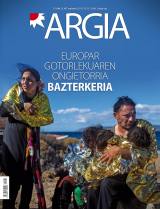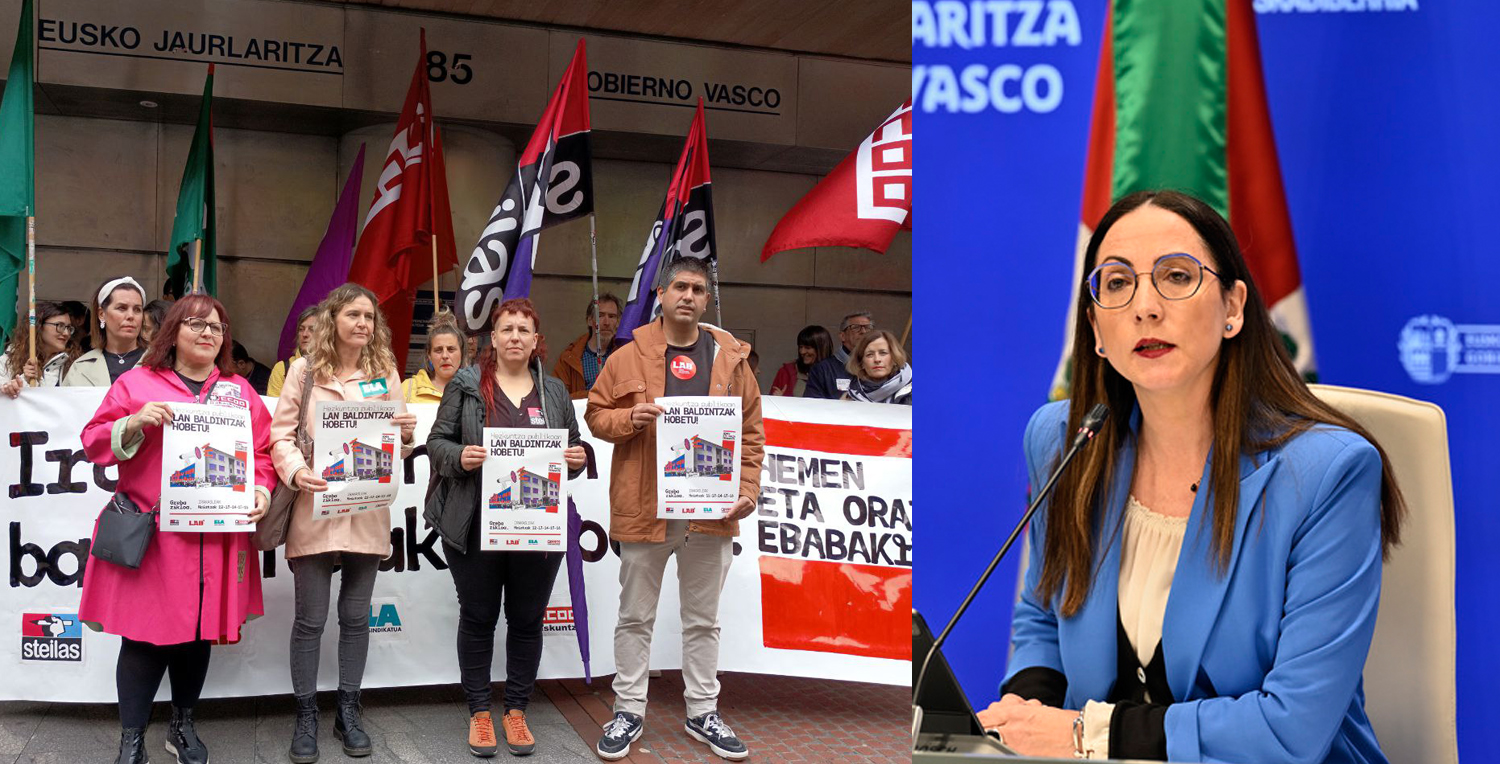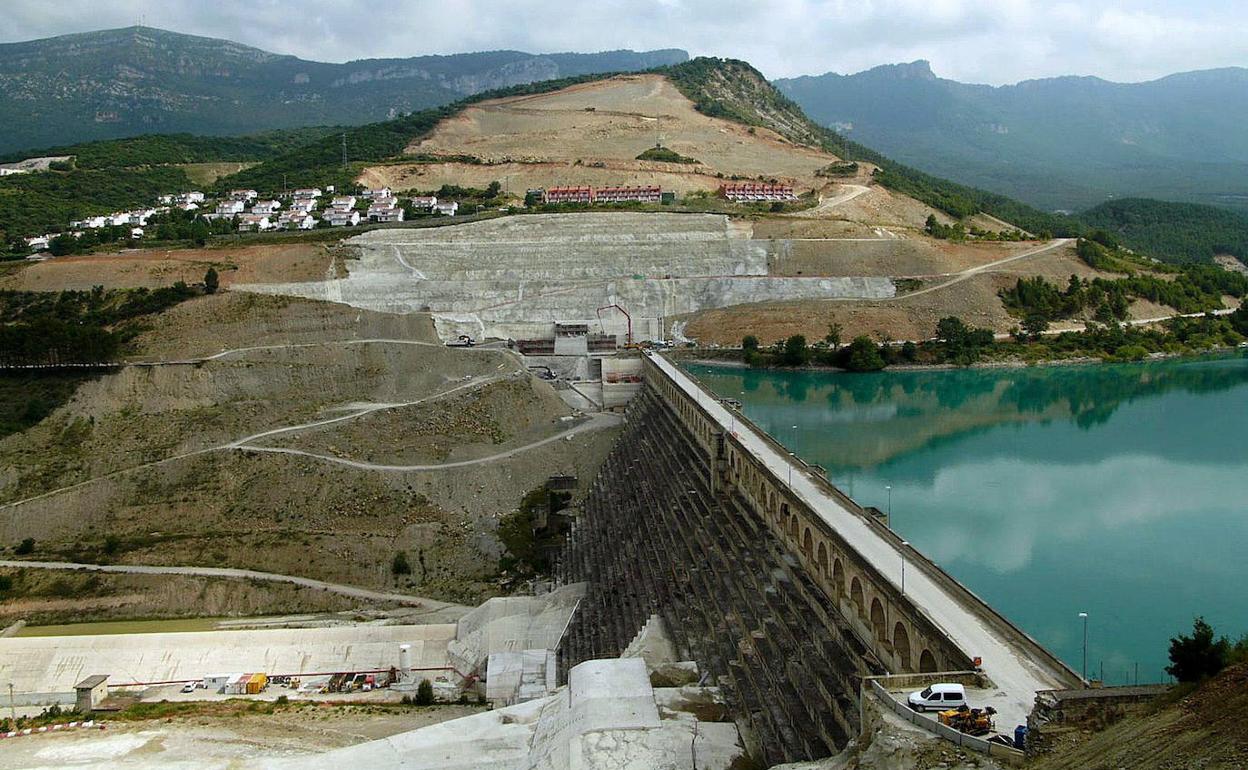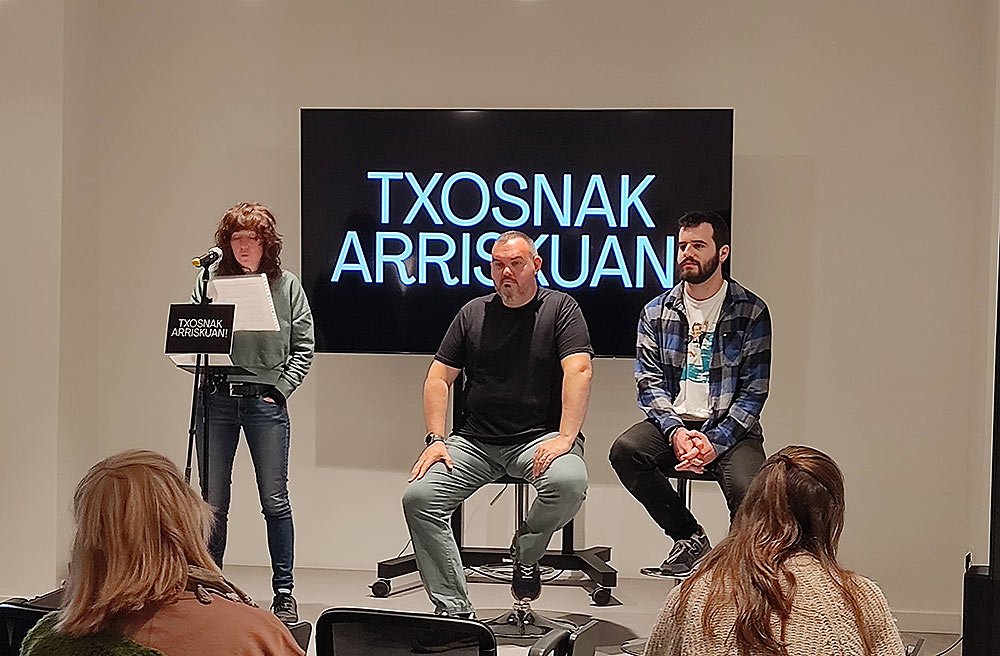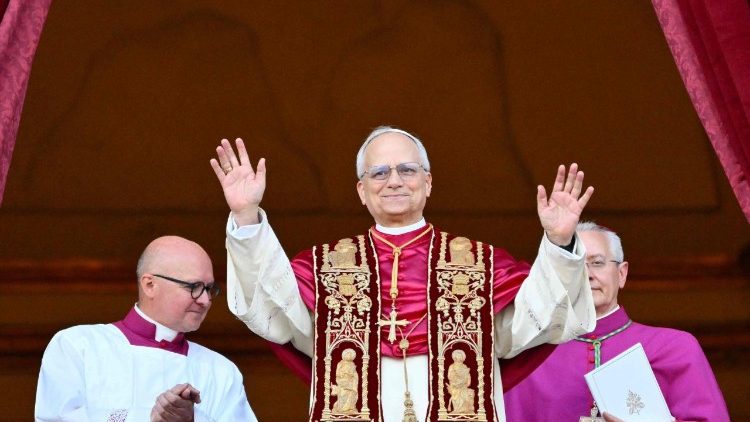Photo exhibition counted orally
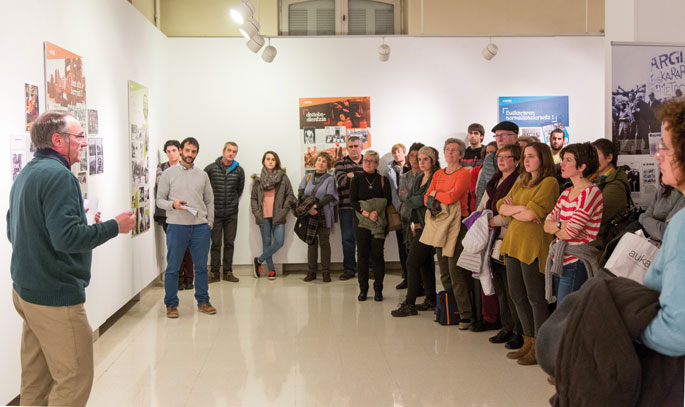
From the years after Franco's death to the present through images. We've been to Hernani for a photo exhibition with mime. The ups and downs of the Basque popular movement of those times, its evolution in Hernani and the role played by the people. This is what they explained to us on November 30 at the Casa de Cultura, organized jointly by ARGIA and the Basque Country Eguna de Hernani.
Transitions. The exhibition A selective look at the recent history of Euskal Herria is composed of images collected from the ARGIA photographic archive, grouped by themes in panels. In Hernani, Urko Apaolaza's explanations have been completed by four people who have brought history closer to the people: Ixiar Pagoaga (member of the Equality Council of Hernani) and Horten Baños have spoken about the feminist movement of Euskal Herria and Hernani, Agustin Taludes (former mayor of Hernani) about the labour movement of the time and the Orbegozo workshop of Hernani, and Pello Zubiria (journalist of ARGIA) about the chronic press.
“They have been small and not so small victories since the 1970s, although there is much to do,” explained one of the rapporteurs. But it's curious that in more than one claim, looking at photography, it looks like years aren't moving forward. Free abortion has been one of the main struggles of feminism, and unfortunately still today, and seeing the hands of a manifestation of the 1980s and the massive 2014 demonstration in Pamplona, it only differs from the color quality of photography.
Do you want to organize yourself in your village?
The approach of this exhibition is that the exhibition is installed in your locality and that some of the topics discussed in it are explained by the different agents of the locality. Groups or people interested in organising can contact: sustapena@argia.eus or by calling 943 37 15 45.
BRN + Neighborhood and Sain Mountain + Odei + Monsieur le crepe and Muxker
What: The harvest party.
When: May 2nd.
In which: In the Bilborock Room.
---------------------------------------------------------
The seeds sown need water, light and time to germinate. Nature has... [+]









